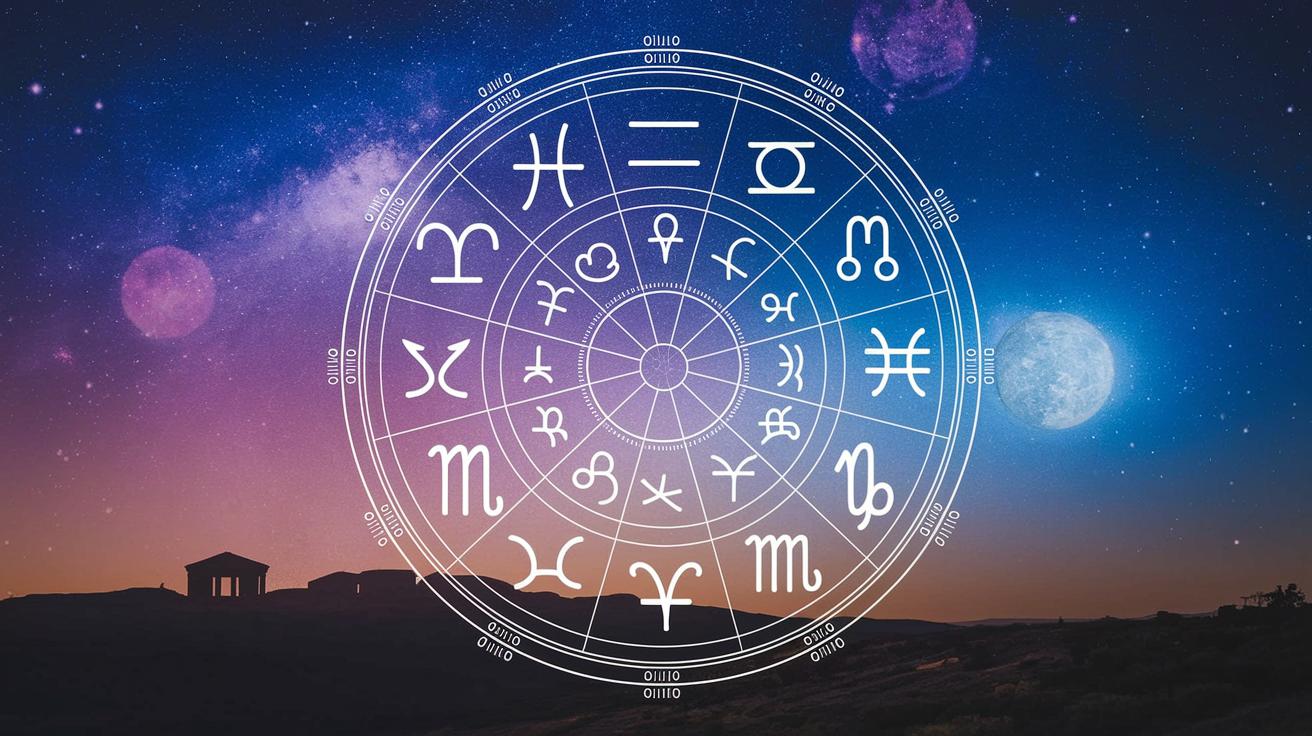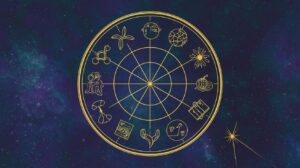What You Need to Know
- 🌟 Astrology’s Rich History: Discover how astrology originated with ancient civilizations like the Babylonians and evolved through the influence of Greek and Roman cultures.
- 🔮 The Zodiac’s Mystical Blueprint: Learn about the twelve astrological signs, each associated with unique personality traits and life experiences, serving as a celestial guide.
- 🪐 Planetary Influences: Understand how the positions of the sun, moon, and planets at birth create a natal chart that reveals your unique astrological profile and potential paths.
- 🏠 The Twelve Houses: Explore how the twelve houses in astrology represent distinct life areas, providing context for interpreting personal experiences and guiding growth.
- ✨ Cosmic Cycles and Transits: Gain insights into how ongoing planetary movements impact personal growth, reflecting times of change, opportunity, and transformation.
Astrology has captivated human imagination for centuries, offering insights into personality, destiny, and the cosmos. It’s a fascinating field that combines elements of science, art, and intuition. At its core, astrology is the study of the movements and positions of celestial bodies and their potential influence on human affairs and natural phenomena. Whether you’re a seasoned astrologer or a curious newcomer, exploring the mystical wonders of astrology can be a journey of self-discovery and cosmic understanding.
The Origins and History of Astrology
Astrology’s roots can be traced back to ancient civilizations such as the Babylonians, who were among the first to document the movements of the stars and planets. This knowledge was later embraced and expanded by the Greeks, Romans, and other cultures. Astrology played a significant role in shaping early scientific thought, with astronomers and astrologers often being one and the same. The practice eventually spread across the globe, influencing various cultures and societies in unique ways.
Throughout history, astrology has been used for a variety of purposes, from predicting agricultural cycles to guiding personal and political decisions. Its enduring appeal lies in its ability to provide a framework for understanding the universe and our place within it.
The Zodiac: A Celestial Blueprint
At the heart of astrology lies the zodiac, a belt of the heavens divided into twelve equal parts, each associated with a specific astrological sign. These signs—Aries, Taurus, Gemini, Cancer, Leo, Virgo, Libra, Scorpio, Sagittarius, Capricorn, Aquarius, and Pisces—are linked to particular personality traits and life experiences. The zodiac serves as a celestial blueprint, offering insights into our strengths, challenges, and potential paths.
Each sign is ruled by a planet, further influencing its characteristics. For instance, fiery Aries is ruled by Mars, the planet of action and desire, while gentle Taurus is governed by Venus, the planet of love and beauty. Understanding the interplay between signs and ruling planets can deepen our appreciation of astrology’s complexity and nuance.
Planetary Influences: The Dance of the Cosmos
The planets, including the sun and moon, play a crucial role in astrology, each governing different aspects of life and personality. The position of these celestial bodies at the time of our birth forms our natal chart, a map of the sky that reveals our unique astrological profile. Analyzing the interactions between planets can unveil insights into our emotional patterns, career inclinations, and relationship dynamics.
Transits, the ongoing movement of planets through the zodiac, also impact our lives, reflecting times of change, growth, and opportunity. By understanding these cosmic cycles, we can harness their energies to navigate life’s challenges and embrace its blessings.
The Houses: Domains of Life Experience
In addition to signs and planets, astrology involves the twelve houses, each representing a distinct area of life, such as career, relationships, or health. The placement of planets within these houses influences how we experience and express different facets of our lives. The houses provide context, helping us interpret how astrological energies manifest in specific life domains.
For example, the first house relates to identity and self-expression, while the seventh house pertains to partnerships and collaboration. By examining the interplay between houses, signs, and planets, astrologers can offer tailored guidance and predictions.
Conclusion: Embracing the Wonder of Astrology
Astrology invites us to explore the universe’s mysteries and our own inner landscapes, offering a rich tapestry of wisdom and insight. Whether we view it as a tool for personal growth, a lens for understanding the world, or simply a source of wonder, astrology continues to inspire and intrigue. As you navigate your own astrological journey, consider this: How might the stars illuminate your path and reveal the hidden potentials within you?
FAQ
What is astrology and how does it work?
Astrology is the study of the movements and positions of celestial bodies and their potential influence on human affairs and natural phenomena. It works by analyzing the positions of the sun, moon, and planets at the time of a person’s birth, creating a natal chart that offers insights into personality traits, life experiences, and potential paths.
How did astrology originate and evolve over time?
Astrology originated with ancient civilizations like the Babylonians, who first documented celestial movements. It was further developed by the Greeks, Romans, and other cultures, becoming intertwined with early scientific thought. Over time, astrology spread globally, influencing various societies and evolving into the complex system we know today.
What is the significance of the zodiac in astrology?
The zodiac is a celestial belt divided into twelve parts, each associated with an astrological sign. These signs are linked to specific personality traits and life experiences, serving as a blueprint for understanding individual strengths, challenges, and potential paths. The zodiac is central to interpreting astrological influences.
How do planets and their movements affect astrology?
Planets, including the sun and moon, play a crucial role in astrology by governing different aspects of life and personality. Their positions at birth create a natal chart, revealing unique astrological profiles. Ongoing planetary movements, or transits, reflect times of change and growth, influencing personal experiences and opportunities.
What are the houses in astrology and their importance?
The twelve houses in astrology represent specific life areas, such as career, relationships, and health. The placement of planets within these houses influences how astrological energies manifest in different life domains. Understanding the houses provides context for interpreting personal experiences and guiding individual growth.
Did you like it?4.6/5 (20)








4 comments
Daisy
So interesting! I knew astrology was old, but I had no idea it dates back to the Babylonians. This post was a real eye-opener. Keep up the great work!
Jeremiah
Love this post!!! Quick question: if I’m a Leo with a Taurus rising, what exactly does that mean for my love life? 😅
Muffin
Thanks for the detailed breakdown! I’ve always wondered how the zodiac signs came to be. Do you have any book recommendations for someone looking to dive deeper into astrology?
ezekiel_specter
Wow, this guide is amazing! I’ve always been fascinated by how the planets influence our lives. Can you do a post on how to read a natal chart for beginners? 😍